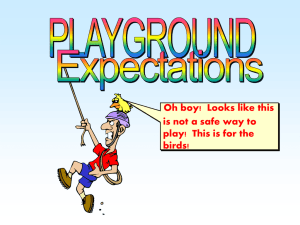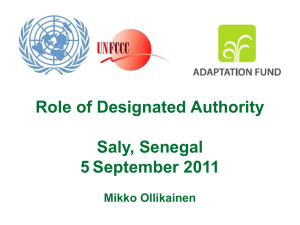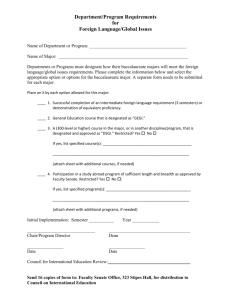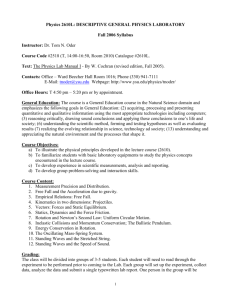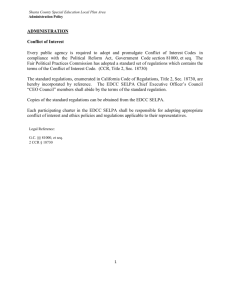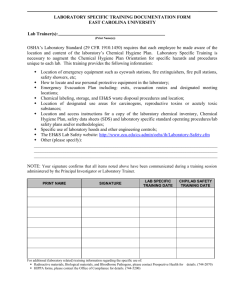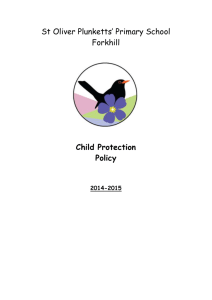Child Protection Policy
advertisement
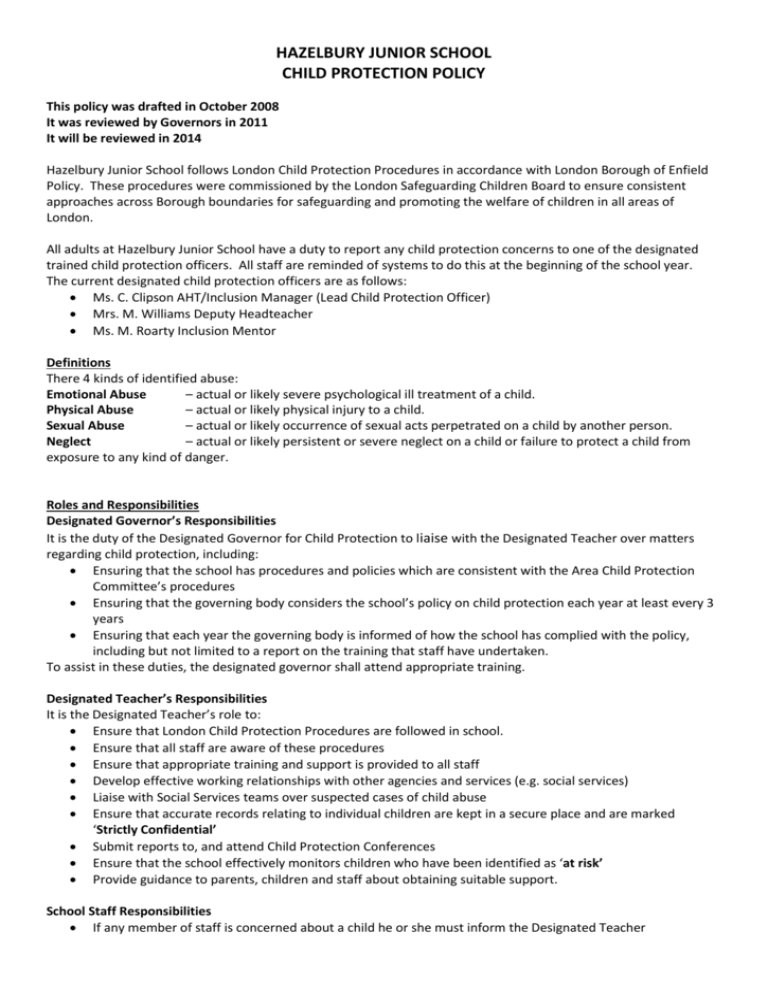
HAZELBURY JUNIOR SCHOOL CHILD PROTECTION POLICY This policy was drafted in October 2008 It was reviewed by Governors in 2011 It will be reviewed in 2014 Hazelbury Junior School follows London Child Protection Procedures in accordance with London Borough of Enfield Policy. These procedures were commissioned by the London Safeguarding Children Board to ensure consistent approaches across Borough boundaries for safeguarding and promoting the welfare of children in all areas of London. All adults at Hazelbury Junior School have a duty to report any child protection concerns to one of the designated trained child protection officers. All staff are reminded of systems to do this at the beginning of the school year. The current designated child protection officers are as follows: Ms. C. Clipson AHT/Inclusion Manager (Lead Child Protection Officer) Mrs. M. Williams Deputy Headteacher Ms. M. Roarty Inclusion Mentor Definitions There 4 kinds of identified abuse: Emotional Abuse – actual or likely severe psychological ill treatment of a child. Physical Abuse – actual or likely physical injury to a child. Sexual Abuse – actual or likely occurrence of sexual acts perpetrated on a child by another person. Neglect – actual or likely persistent or severe neglect on a child or failure to protect a child from exposure to any kind of danger. Roles and Responsibilities Designated Governor’s Responsibilities It is the duty of the Designated Governor for Child Protection to liaise with the Designated Teacher over matters regarding child protection, including: Ensuring that the school has procedures and policies which are consistent with the Area Child Protection Committee’s procedures Ensuring that the governing body considers the school’s policy on child protection each year at least every 3 years Ensuring that each year the governing body is informed of how the school has complied with the policy, including but not limited to a report on the training that staff have undertaken. To assist in these duties, the designated governor shall attend appropriate training. Designated Teacher’s Responsibilities It is the Designated Teacher’s role to: Ensure that London Child Protection Procedures are followed in school. Ensure that all staff are aware of these procedures Ensure that appropriate training and support is provided to all staff Develop effective working relationships with other agencies and services (e.g. social services) Liaise with Social Services teams over suspected cases of child abuse Ensure that accurate records relating to individual children are kept in a secure place and are marked ‘Strictly Confidential’ Submit reports to, and attend Child Protection Conferences Ensure that the school effectively monitors children who have been identified as ‘at risk’ Provide guidance to parents, children and staff about obtaining suitable support. School Staff Responsibilities If any member of staff is concerned about a child he or she must inform the Designated Teacher Information regarding the concerns must be recorded by the member of staff on the same day. The recording must be a clear, factual account of the observations or incident and should be recorded on the Concern Form which are available in the staff room or office. The Designated Person will decide whether the concerns should be referred to the Children’s and Families Department at Social Services. If it is decided to make a referral to the Children’s and Families Department where possible parents will be informed and where this does not endanger the child. However if necessary a referral may be made without prior discussion with the parents. If a referral is made to the Children’s and Families Department, the Designated Person will ensure that a written report of the concerns is sent to the Social Worker dealing with the case within 48 hours Particular attention will be paid to the attendance and development of any child who has been identified as at risk or who has been placed on the Child Protection Register If a child who is known to be on the Child Protection Register changes school, the Designated Person will inform the Social Worker responsible for the case and transfer the appropriate records to the receiving school If in doubt about whether to refer a matter the Designated Person will call the Duty Officer to seek their advice If a decision is made not to refer, the incident must still be logged in the ‘Concerns’ file which is kept in the Child Protection Drawer. Signs and Symptoms When to be Concerned Staff should be concerned about a pupil if he or she: Has an injury which is not typical of the bumps and scrapes normally associated with children’s activities Regularly has unexplained injuries Frequently has injuries (even when apparently reasonable explanations are given) Gives confused or conflicting explanations as to how injuries were sustained Exhibits significant changes in behaviour, performance or attitude Has poor personal hygiene or wears inappropriate clothing Indulges in sexual behaviour which is unusually explicit and/or inappropriate to his/her age Is constantly tired or hungry, or frequently late/absent from school Discloses an experience in which he or she may have been significantly harmed. Physical Warning Signs These can include any or several of the following: Regular unexplained injuries Injuries for which confused or conflicting explanations are given Significant changes in behaviour, performance or attitude Poor personal hygiene Inappropriate or insufficient clothing Behaviour which is unusually sexually explicit Constant tiredness or hunger Child who appears underweight and failing to thrive Child being left unsupervised Emotional Warning Signs may include: Over-reaction to mistakes Rocking, thumb-sucking, hair twisting Extreme passivity or aggression Continual self-depreciation Self harming Immature mental and emotional development Monitoring and Review The policy will be kept under review by the School Improvement Committee of the Governing Body. The strategies, practice and record keeping will be monitored by a nominated Governor on behalf of the Governing Body. The policy has an identified review date. However it may be revised by the Governing Body before this, as a response to needs identified in monitoring or further advice The Assistant Head as Designated teacher will monitor the number and type of incidents and report to the Designated Governor for Child Protection. The records will be provided to the LSCB on request. Appendix 1 Guidance for Staff Dealing with Disclosure Children and young people choose the person to whom they disclose – it is not accidental! If a child or young person makes a disclosure to you it is because they feel comfortable with you, trust you and want the abuse to stop. Receiving a disclosure is often unexpected and can be upsetting. It can raise all sorts of complex emotions and feelings in us. We might feel angry or disgusted, distressed or shocked. It can cause us to want to ‘rescue’ the child and assure them that everything will be all right. It can sometimes make us feel anxious or paralysed. It is important to acknowledge that we are all human and we all have feelings. By doing this we can better prepare ourselves to respond appropriately should we ever be in such a position. Do: Remain calm Listen carefully to what the child or young person is telling you without interrupting Offer them a glass of water or tissues if that seems appropriate Tell them that it was the right thing to tell you and that you are taking them seriously Tell them who you are going to tell and why and that you will let them know what will happen next If you aren’t clear about something ask them to repeat it or mirror it back: ‘So you’re saying that on Tuesday night when your mum goes out with her friends, X comes into your room …’ etc Write down as accurately as possible what you have been told, the time and date and sign it Pass it to the Designated Person for Child Protection immediately and without delay – there may need to be consideration given to whether it is safe for the child to go home so this can’t wait until tomorrow. Don’t: Ask questions or probe for information Don’t appear shocked no matter how you feel Don’t make negative comments about the alleged abuser Don’t promise that you will not pass the information on Don’t make promises you can’t keep, everything may not be all right Don’t promise to keep it a secret – you can’t Don’t try to counsel the child, that can be offered later on. Appendix 2: Allegations Involving School Staff If a child, or parent makes a complaint of abuse against a member of staff, the person receiving the complaint must take it seriously and immediately inform the Designated Teacher Any member or staff who has reason to suspect that a pupil may have been abused by another member of staff, either at school or elsewhere, must immediately inform the Designated Teacher. He or she must also make a record of concerns (including a note of anyone else who witnessed the incident or allegation.) If the concerns are about the Designated Teacher, the Headteacher should be informed. The Designated Teacher will not investigate the allegation itself, or take written or detailed statements, but he or she will assess whether it is necessary to refer to the local Social Services team in consultation with the designated Local Authority Officer. If the Designated Teacher decides that the allegation warrants further action through child protection procedures he or she must make a referral direct to the local Social Services team. If the allegation constitutes a serious criminal offence it will be necessary to contact Social Services before informing the member of staff. If it is decided that it is not necessary to refer to Social Services the Designated Teacher will consider whether it is necessary to hold an internal investigation.
